Female Coaching Role Models for Aspiring Young Women
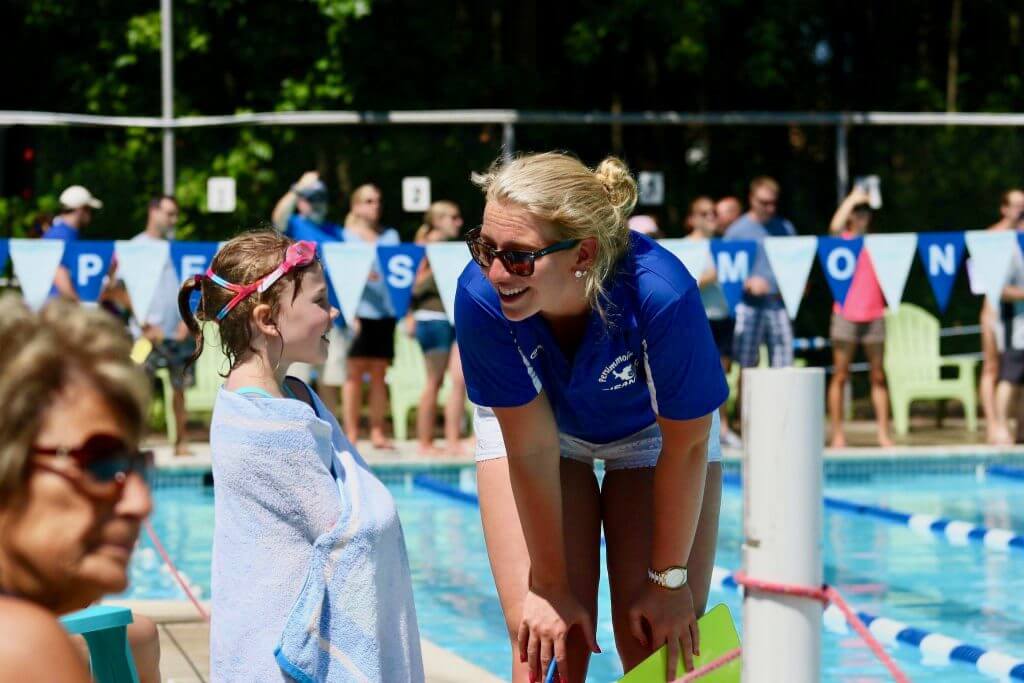
By Payton Titus, Swimming World College Intern.
It comes as no surprise that swimming’s gender equity grade was an “F” in a report published by the Alliance of Women Coaches and Tucker Center for Research on Girls and Women in Sport for the 2017-2018 school year. For this report, an “F” indicates that the percentage of female coaches in said NCAA Division I program was less than 24. In fact, the number of female coaches in swimming totaled to a measly 17.2 percent.
In the face of such disappointing statistics, it is important that the swimming community highlight female figures who excel in their coaching positions. It is 2018, after all. Two years ago, a woman was chosen to run for president of the United States. With a push for more women in leadership, why are only 17.2 percent of the NCAA swim coaches female?
The three women featured below exemplify coaching role models with whom this generation should become familiar if that number is ever going to change.
Jill Sterkel
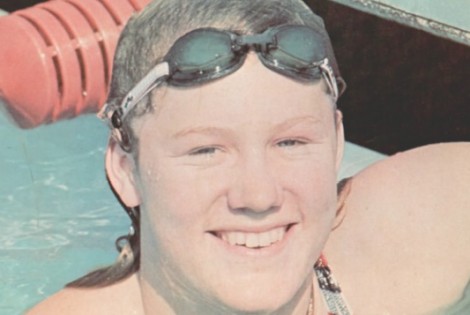
Photo Courtesy: Swimming World
Jill Sterkel is revered both for her swimming and coaching talents. At the age of 10, Sterkel swam in her first US National Championship meet. At 14, she qualified for her first Pan American Games. Sterkel continued to assert her dominance in the swimming world by making four straight Olympic teams (1976, 1980, 1984, 1988), winning medals at each—including the famed 4×100 freestyle relay in 1976.
Sterkel was seen as a leader by her fellow teammates and was nominated captain of the US Olympic team three times (1980, 1984, 1988). By becoming a member of four Olympic squads, she surpassed every other American swimmer in the first 92 years of the modern Olympiad.
Throughout her collegiate career at the University of Texas, Sterkel won 20 U.S. National Championships and 21 NCAA/AIAW National Championships. In 1986, Jill Sterkel was named assistant women’s coach at her alma mater and became head coach of the program from 1992 to 2006.
While coaching at the University of Texas, two of Sterkel’s athletes qualified for the 2000 Olympic Team: Whitney Hedgepath in and Erin Phenix. Hedgepath won silver medals in the 100m and 200m backstrokes and gold on the 4x100m medley relay, while Phenix won gold on the 4x100m freestyle relay.
Sterkel was one of the first female coaches to break into the boys’ club hierarchy arguably still in place today. Her first job coaching at the world championship level was as an assistant women’s swimming coach for the 1999 Pan American Games in Winnipeg. She was then named assistant women’s coach for the 2001 World Championships in Fukuoka.
Penny Dean
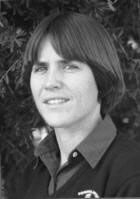
Photo Courtesy: ISHOF
Penny Dean is a distance and open water swimming pioneer. Dean began swimming at only 20 months old. By the age of 10, she came just 400 meters short of swimming the length of the Golden Gate Bridge. Determined to wash away the disappointment of that failure, Dean put every fiber of her being into becoming the most successful open water swimmer possible.
In 1976, she swam from the mainland of California to Catalina Island in world record time of 7 hours, 15 minutes and 55 seconds – smashing the former record by one and a half hours. In 1980, Dean was ready to take on the English Channel.
At this point, a mere 18 percent of swimmers had completed the English Channel, and Dean was ready to join them. Despite the chilling 55 degree water and persistent tides, she finished the swim in a record-shattering 7 hours and 40 minutes. Her record would stand for a whopping 15 years, until Chad Hundeby broke it in 1995.
After three more years of swimming dominance, Dean dove into the coaching scene. She served as a coach for the US National Team of Open Water Swimming from 1988 through 1991. She was also the head coach of the 1991 US Pan Pacific Championship team, the 1991 World Championships and several other elite championship teams.
Capitalizing on her gift of teaching, Dean served for 25 years at Pomona College in the following three roles: professor, head swim coach and water polo coach. She sat as the president of the College Swimming Coaches Association of America (CSCAA) from 1985 to 1987 and served on the NCAA Swimming Committee.
Dean has also dabbled in sports writing with a focus on open water and marathon swimming. Two of her most famous articles include How to Swim a Marathon and History of the Catalina Swims. She has presented numerous international clinics on marathon and open water swimming, and her legacy continues to impact the swimming world today.
Teri McKeever
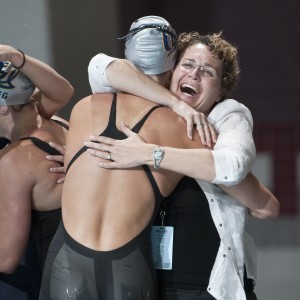
Photo Courtesy: Peter H. Bick
Teri McKeever, our final trailblazer, is one of the most accomplished female coaches in the history of the sport. She had a successful swimming career herself, competing at the Division I NCAAs all four years and helping her team to four top-10 finishes. She began her coaching career just one year after graduating from USC, serving as the assistant coach from 1984 to 1987. While coaching there, she helped develop several All-Americans.
After USC, McKeever went on to coach at Fresno State for five years. From 1988 to 1992, she coached the women’s and men’s team from 1990 to 1992.
Since 1992, McKeever has been the head women’s coach for the Golden Bears at the University of California-Berkeley. Under her leadership, the women’s team has won four team NCAA and PAC-12 championships.
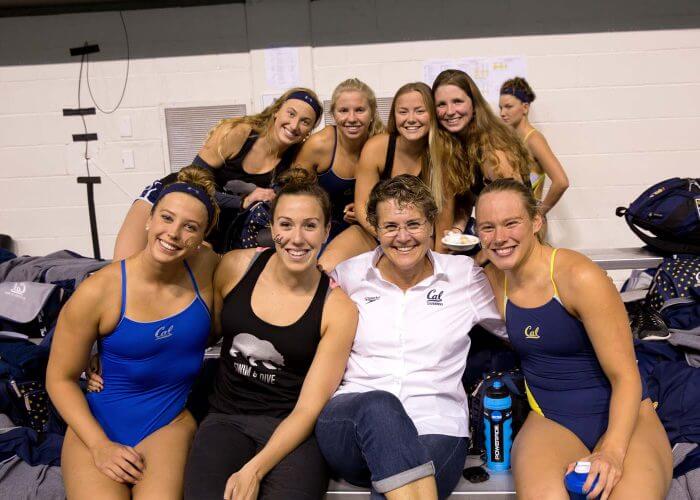
Photo Courtesy: Chuckarelei Studios
McKeever has coached 26 Olympians, including Natalie Coughlin, Dana Vollmer, Missy Franklin and Kathleen Baker. The medal count between these 26 swimmers totals 36 – an average of 1.38 medals per swimmer.
McKeever infiltrated the male hierarchy of international coaching to become the first ever female coach of the US Olympic Team in 2012. Before this accomplishment, McKeever served as a two-time assistant coach of the US Olympic Team, six-time assistant to the US World Championships Team and two-time head coach of the US Pan Pacs Team. The same year, she served as head coach of the US World Short Course Championships.
Women like Sterkel, Dean, and McKeever exemplify what women can accomplish in the world of swimming – and beyond. The key to gender equality in coaching is representation. No amount of rhetoric is as effective in inspiring young women as seeing strong women in action.
Commentary: All commentaries are the opinion of the author and do not necessarily reflect the views of Swimming World Magazine nor its staff.




Kenora Swimming Sharks has its very own terrific female coach-Janet Hyslop-Mastromatteo.
Gender equality grade? I am still not understanding the push to have equal number of every sub group of people in America in everything. I don’t believe swim teams discriminate against women coaches. Has anyone looked at the number of women interested in coaching? Men and women are not the same and have different interests as a whole. It’s like kindergarten teachers. There is a tiny minority of men at that grade level teaching.
Jessica Barisano
Wow!! what crazy statistics!
The sport needs more like you. Miss your sweet self around here!!?
Annette Morejon Gobel Thank you so much! This means SO much to me right now??♥️
Jessica Barisano you made an amazing impression, never to be forgotten! My kiddos are older now but you made your mark. We love u here in PCB!
Annette Morejon Gobel ♥️♥️♥️♥️♥️
Annette Morejon Gobel I second this! We love coach Jessica Barisano!
Jessica Barisano come baaaack! ?
Annette Morejon Gobel Lori Gatzow I need some coaching in my lifeeeeeee! I miss those sweet little (now grown), goggle-marked faces!
Brooke Newby Paige Newby
There are a lot more than three amazing female coaches out there who would make remarkable role models
I know one…her name is Jessica. ?
Brittany Biggs
Christie Sofatzis ?
Cathleen Pruden, Garland Bartlett and Beth O’Connor Baker are on my list of female coaching role models!
Melissa Wolf
Coach Melanie Adams Lattin-thanks for being such an amazing role model to so many of our young female swimmers!
Wow!! Thanks Fran Spurrier?
I totally agree with you – Melanie Adams Lattin is an AMAZING mentor!! ?♀️
Tracey Wolf Feril you have the kindest heart? Love you and Fran Spurrier for sharing your amazing daughters with me.??♀️
I was a Big 10 Coach, of Women’s Swimming for 14 years, as well as one year year at a MAC school. Coached a SSUNY team as I got my M.S. Swam inOT, was a Jr. Nat. Champion, yet the majority of my women athletes, wanted a male coach. Putting men’s and women’s teams together at the college, has predetermined that a man be the Head Coach. I, actually, did well in my career, coaching young men, but ADs, Aquatic Directors, USA Teams, have not given women many chances to be Head Coaches! Change the culture!
I was a Big 10 Coach of Women’s Swimming for 14 years, as well as one year year at a MAC school. Coached a SUNY team as I got my M.S. Swam in OT, was a Jr. Nat. Champion, yet the majority of my women athletes, wanted a male coach. Putting men’s and women’s teams together at the college, has predetermined that a man be the Head Coach. I, actually, did well in my career, coaching young men, but ADs, Aquatic Directors, USA Teams, have not given women many chances to be Head Coaches! Change the culture!
Blake Bergstrom you are an inspiration
So true